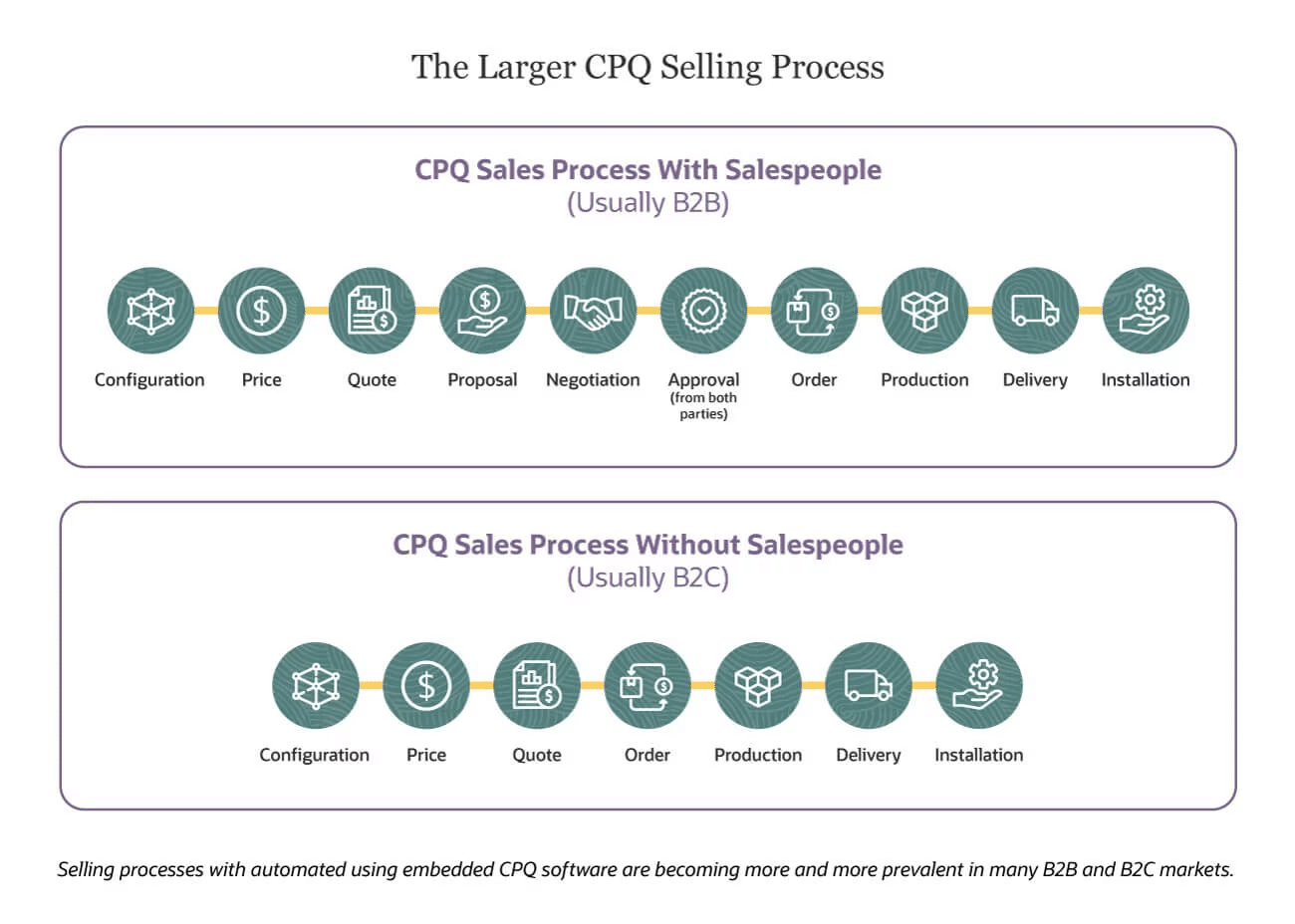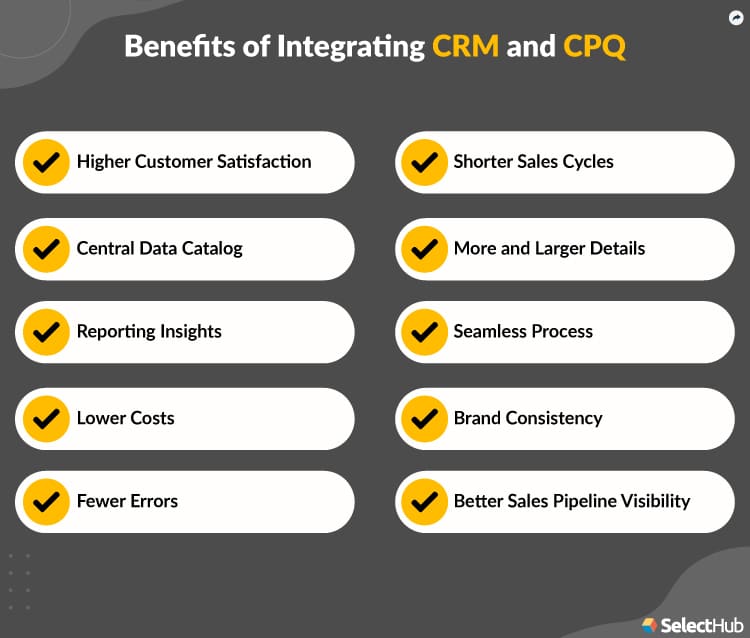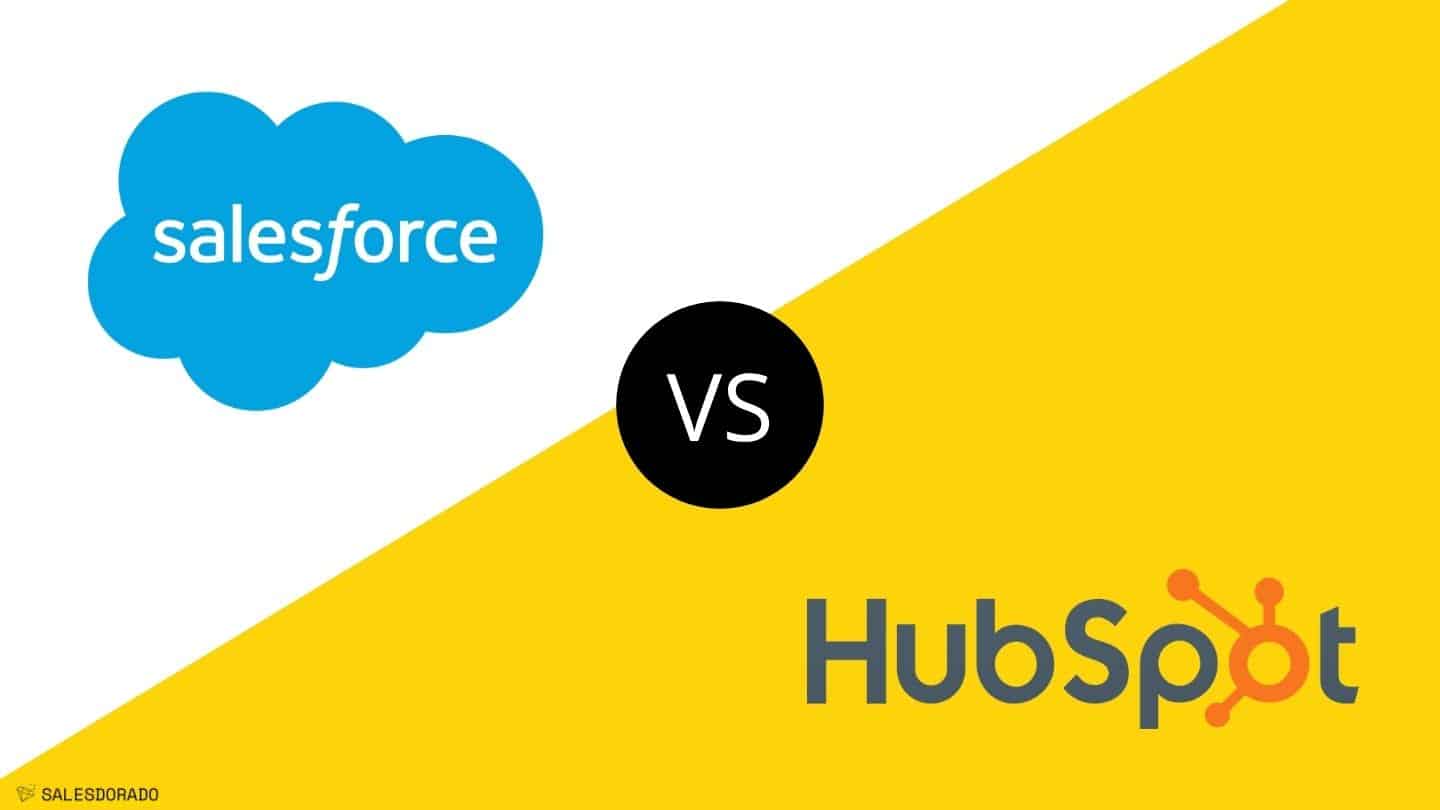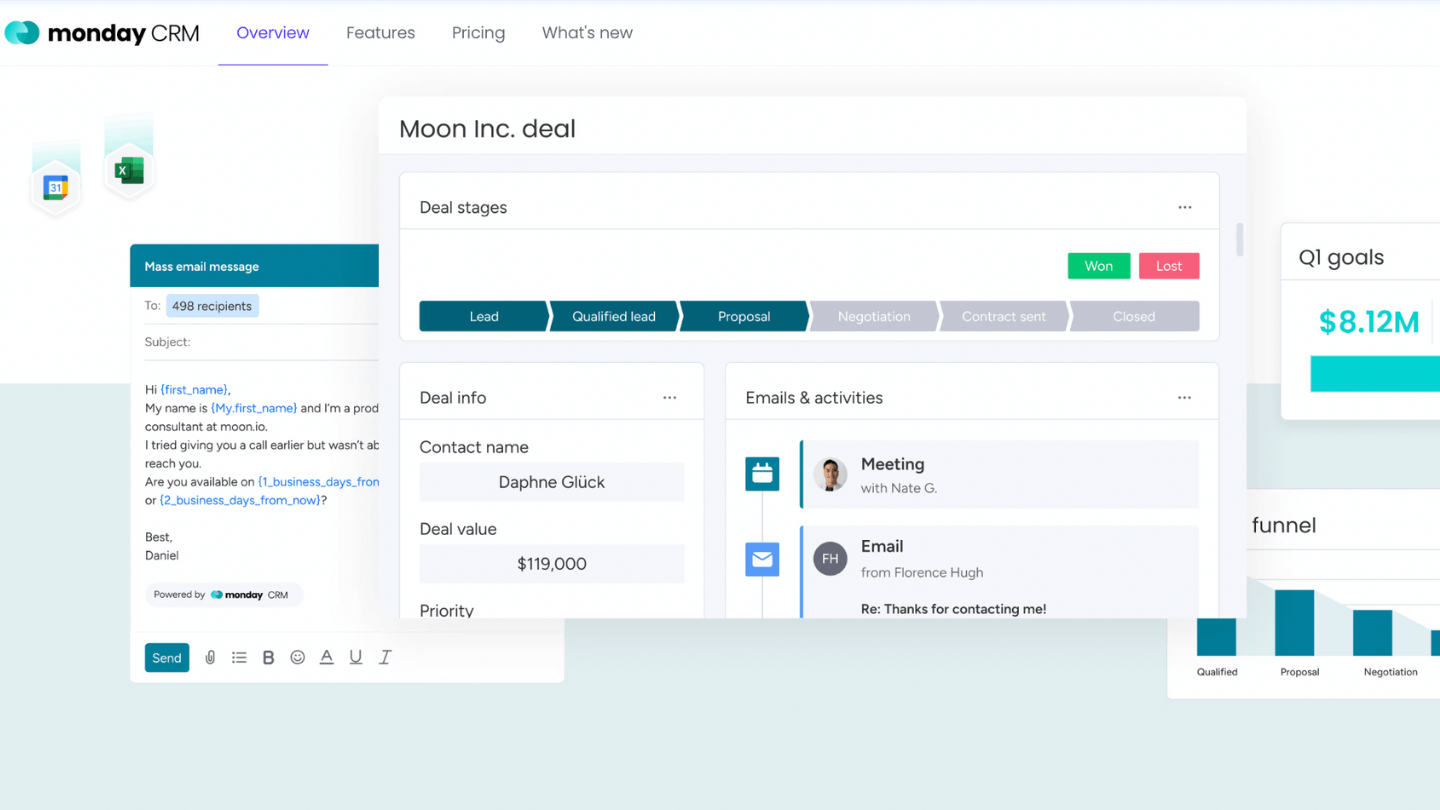CPQ (for Configure, Price, Quote) is one of the most fundamental steps in the sales process, but it’s also one of the most complex – not least because it involves a great deal of collaboration with other departments.
In this article, we review how to evaluate a CPQ process, why to optimize it, and all the related concepts.
Sommaire
CPQ: Definition
CPQ is an acronym for Configure, Price, Quote, which refers to all the business processes involved in proposing a quote to a customer. The process consists of configuring one or more products, translating the customer’s needs into a list of products, a price, and ultimately a quotation.
In practice, the term CPQ is often used to refer to software that automates this part of the process, more or less integrated with CRM software. But CPQ doesn’t just refer to tools and sales of complex products.
CPQ is an acronym for Configure, Price, Quote, which refers to all the business processes involved in proposing a quote to a customer. The process consists of configuring one or more products, translating the customer’s needs into a list of products, a price, and ultimately a quotation.
Stripe, for example, can be considered a CPQ tool. You define products, set more or less configuration options (either directly by the customer or by yourself in the back-office), create subscriptions, edit payment links, and manage a set of subscriptions solely via Stripe.
An accounting tool like Pennylane can also be considered a CPQ tool.
The more complex the products sold, the more critical the CPQ processes are, to ensure a healthy margin on all contracts, limit errors, and shorten the time between the discovery phase and the negotiation phase.
Configuration
More complex products usually have several parameters that influence the price. For example, if you’re buying a license from Salesforce, you’ll need to determine..:
- The plan – which essentially depends on the functionality required.
- The number of licenses – which essentially depends on sales conditions and the company’s planned growth.
- The number of API calls – which essentially depends on the integration and extensions chosen
- Storage volume – which depends…on a lot of things
Once all this has been determined, we still have to work out how it will evolve over the billing period. In the case of annual invoicing, you need to determine the conditions for adding or removing licenses, setting a threshold on the volume of API calls, storage volume, and so on.
Price
This is the stage at which products and unit prices are added and multiplied to obtain an overall tariff, for example an annual envelope.
If the price is linear, everyone can get by quite easily. But if there are tiers, sliding-scale prices, promotions, or prices that change over time – for example, according to Eurodol – it quickly becomes much more complicated. Especially if the customer wants to simulate several scenarios before making a decision.
In practice, this stage is usually fully automated, at the very least with Excel files, and in the best cases with dedicated software.
Quote
Editing the quotation itself is not insignificant: you have to include all the conditions of sale, etc., and if you had to edit them all by hand, errors would be frequent.
But the real issue in quotation management is customer agreement management. We can offer the customer an electronic signature, automatically pass the opportunity to closed/win in your CRM, launch the invoicing process, and so on.
When does CPQ become indispensable?
The use of a CPQ tool can be an interesting way of optimizing your processes and, in particular, gaining a clear idea of your entire revenue cycle. CPQ is indispensable, for example, for leveraging the sales processes of your best salespeople or implementing standardized pricing. For example, it allows you to offer prices that are likely to be accepted by your customers.
A CPQ tool is also essential if you want to simplify the sale of your products, and you can also use it to offer your customers information on optional features.
Other useful features include the ability to collaborate on quotes with team members if you want to speed up quote delivery, the creation of approval triggers to control abusive discounts, or the creation of your own proposal templates.
If you want to keep an eye on the proposal e-mails you send out, the CPQ tool will also let you know when they are opened by your customers.
The benefits of a good CPQ process
#1 CPQ tool boosts sales by providing accurate quotes
A good CPQ process should enable you to increase your sales by offering detailed and complete quotations to your buyer, without you or him having to modify them. At the same time, it increases confidence in your company.
A CPQ also has the advantage of configuring prices to meet customer needs, and increasing the accuracy of quotations.
#2 Adding CPQ to CRM increases profitability
Adding a CPQ to your CRM will not only improve your company’s efficiency, but also increase your sales. According to Jim Dickie, co-founder of CSO Insights, and a study carried out on the sales performance optimization of over 1,000 companies worldwide, this is, for 68% of them, the main motivation for companies to adopt a CPQ tool. The study shows that when companies decided to add a CPQ tool to their core CRM, revenues increased significantly.
#3 CPQ speeds up the sales process
A CPQ also speeds up your sales process, both through faster quote delivery and increased approval time. And that’s essential for success in this field! The CPQ tool can be used to prevent unforeseen circumstances, such as a lack of budget or a change in customer expectations.
For example, Cloudera’s quotation process is three times faster than before implementing CPQ. Domino Printing Sciences, a Salesforce CPQ user, has seen its quotations delivered 80% faster. It’s a great way to avoid having several deals bogged down in your sales pipeline.
#4 Integrate a CPQ tool with other commercial technologies to standardize processes
Often, within an organization, sales, finance, legal, development, etc., are fairly compartmentalized entities. CPQ software enables different departments to communicate more effectively and standardize processes.
This is particularly useful for avoiding mistakes and ensuring that things are done right at the right time. For example, with a CPQ tool, a customer’s signature on a quotation automatically generates an order, followed by the dispatch of an invoice, revenue recognition and order fulfillment.
CPQ software can also be integrated with your enterprise resource planning(ERP) systems, streamlining the process even further. Thanks to this tool, sales and operations are directly linked, and everyone can follow the progress of the process. In practical terms, this means we can respond very quickly to customer requests. Data is also very useful for fine-tuning company decisions and responding to the needs expressed by customers.
#5 CPQ tool helps departments collaborate and draw up precise specifications
One of the main advantages of CPQ software is that the whole company can be involved. Each department can intervene in a process, which makes for greater efficiency and avoids, for example, selling a configuration that is not possible from a financial or legal point of view.
CPQ also enables product experts to determine the best configurations for a product, rather than having salespeople do this independently. Configurations are entered directly into the CPQ system, and sales staff simply need to propose the various options to customers.
CPQ is therefore aimed at the whole company, and you can even use CPQ analyses to identify trends.
Salesforce CPQ & Billing

The term CPQ has largely been democratized by Salesforce’s product of the same name. Salesforce CPQ&Billing allows you to benefit from all the advantages of using a CPQ. This tool enables you to create customer solutions with pre-configured or customized offers, model transaction scenarios, and fine-tune your pricing thanks to marketing intelligence.
To manage recurring revenues, Salesforce CPQ&Billing offers subscription and pay-as-you-go options to tailor quotes to your customers’ needs. For example, you can automate contract amendments or automatically create renewal opportunities.
Finally, this tool unifies sales and finance activities, streamlining the quote-to-cash solution by eliminating front-office and back-office silos. The CPQ will enable you, for example, to automate order acceptances or automatically group all charges on a single unified invoice per customer.
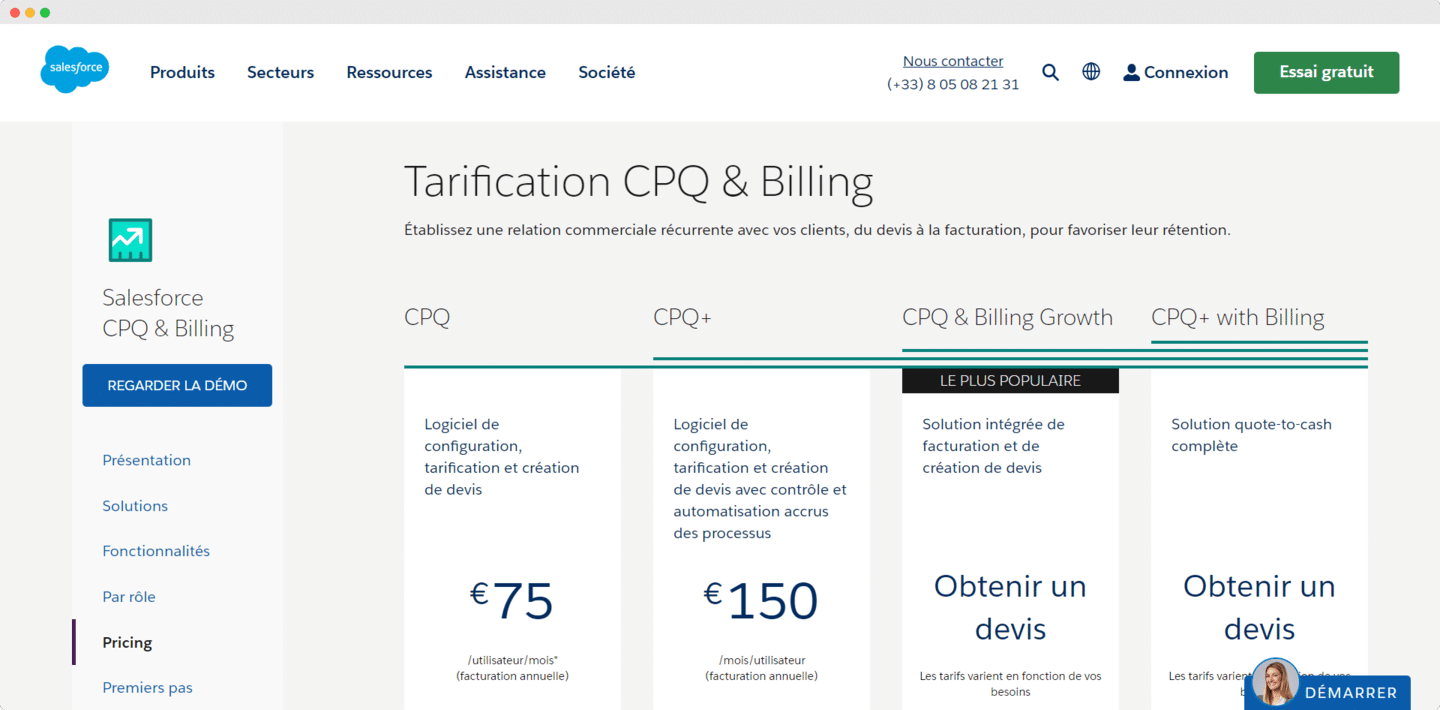
Salesforce offers several pricing options for its CPQ&Billing tool:
- CPQ plan at €75 per user per month. It features configuration, pricing and quotation creation functions.
- The CPQ+ plan at €150 per user per month. This plan offers the same functionality as the CPQ plan, but with greater process control and automation.
- The CPQ&Billing Growth plan, with rates that vary according to need. This plan offers an integrated invoicing and quotation solution.
- The CPQ+ with Billing plan is a complete quote-to-cash solution, with rates that vary according to your needs.
Find out more about Salesforce CPQSalesforceCPQ offers a free demo to give you a good idea of the tool’s capabilities, so make the most of it!

